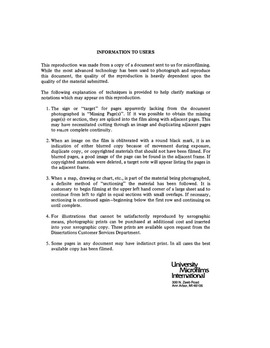| dc.contributor.author | Gerami, Shahin, | en_US |
| dc.date.accessioned | 2013-08-16T12:28:51Z | |
| dc.date.available | 2013-08-16T12:28:51Z | |
| dc.date.issued | 1983 | en_US |
| dc.identifier.uri | https://hdl.handle.net/11244/5098 | |
| dc.description.abstract | The results of this study call for some revisions in the premises of the two models. World-system theory needs to consider the internal conditions of the periphery as one of the parameters accounting for underdevelopment. Neoclassical economics needs to re-evaluate the long run effects of free trade and the international division of labor on the economic structure of Third World countries. | en_US |
| dc.description.abstract | It is suggested here that through integrated export policies, less developed countries can counteract the dependency generating tendencies of the world economy. A historical study of five export alliances, followed by a quantitative analysis of OPEC, support some but not all premises of these theories. This study reveals that participation in OPEC did not lead to economic diversification of its member countries, but increased their remunerative return and helped further their economic growth. The experience of OPEC and some other alliances suggest that export alliance participation can modify the internal impacts of raw material specialization and control external dependency. | en_US |
| dc.description.abstract | This paper is concerned with the role of export alliances in the world-system and their impact on the socio-economic structures of their members. World-system theory argues that the capitalist world-economy and free international trade result in primary product specialization in Third World countries which, in turn, intensifies their economic underdevelopment. The school of neoclassical economics, on the other hand, maintains that when countries specialize in the production of those goods in which they have a comparative advantage and exchange them for other goods, the result is a larger output at the world level. | en_US |
| dc.description.abstract | This paper is a critical evaluation of these models. Export alliances among commodity exporting countries are used to test these theories. Export alliances are organizations of the peripheral states which are producers and exporters of a single commodity. Export alliances are organized to control market fluctuation by stabilizing prices and/or regulating production output, and to safeguard the political and economic rights of the producing countries over their natural resources. | en_US |
| dc.format.extent | ix, 187 leaves : | en_US |
| dc.subject | Sociology, Social Structure and Development. | en_US |
| dc.title | Export alliances as a mechanism of dependence control in the world-system : | en_US |
| dc.type | Thesis | en_US |
| dc.thesis.degree | Ph.D. | en_US |
| dc.thesis.degreeDiscipline | Department of Sociology | en_US |
| dc.note | Source: Dissertation Abstracts International, Volume: 44-02, Section: A, page: 0593. | en_US |
| ou.identifier | (UMI)AAI8313779 | en_US |
| ou.group | College of Arts and Sciences::Department of Sociology | |
